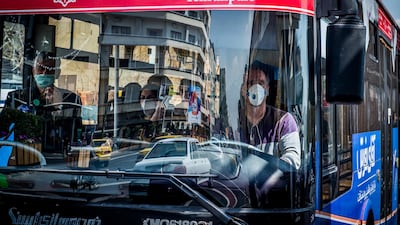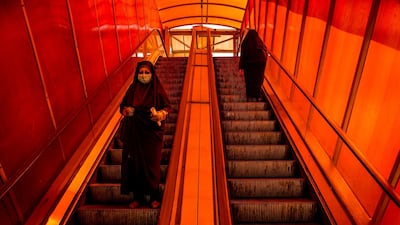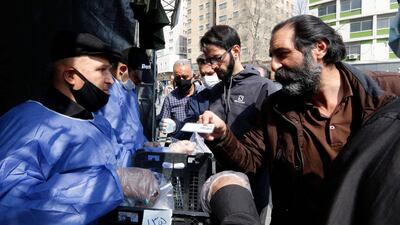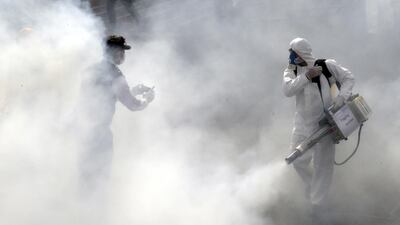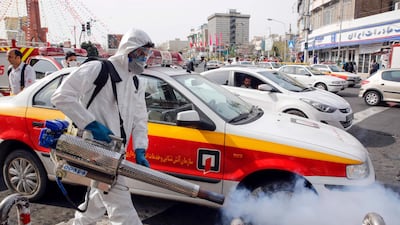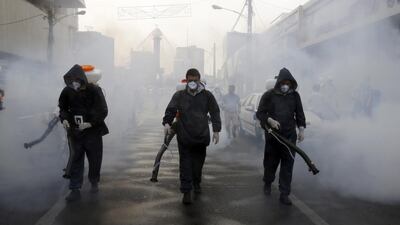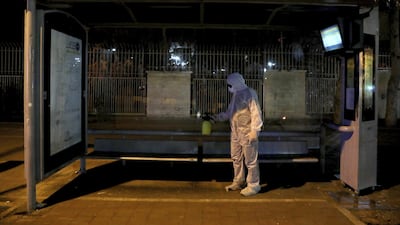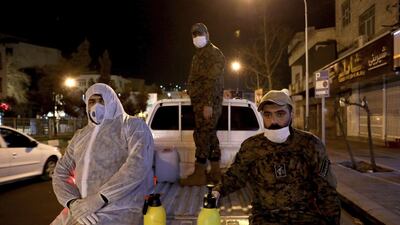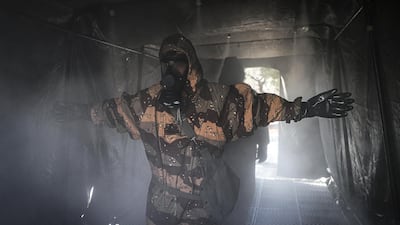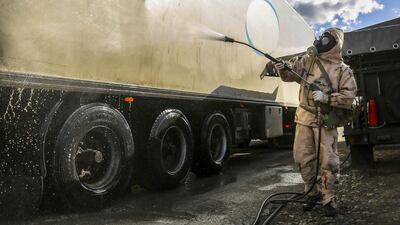Covid-19 is the biggest challenge facing humanity since the Second World War. Just as that conflict helped shape the contours of the Middle East, so today the region is directly affected, and the response of its leaders is a critical element of global recovery.
Unlike China, the wider Middle East region is only at the beginning of its Covid-19 ordeal. Gulf states, including the UAE, have been able to lock down early, and are fortunate enough to have generally well-funded health care, along with the sovereign wealth to provide significant support to their residents.
The risks of inaction or an unco-ordinated response are also evident. The collapse in the price of oil could profoundly transform the Middle Eastern economic model, amid warnings from the UN that the Arab region as a whole could lose as much as $88 billion in exports, with foreign direct investment forecasted to fall by 45 per cent.
The pandemic is shining a harsh light on fault lines and misguided policies across the world, and forcing leaders to dramatically reassess their priorities. It also poses an unprecedented challenge for governments, heads of state and international institutions. As a former prime minister of Norway and former head of the World Health Organisation, I understand the fearsomely complex political, moral and economic decisions those currently in office are having to take over the coming weeks and months.
When I ran the WHO, we addressed the 2002/03 Sars outbreak. I used the powers of the director-general under the organisation’s constitution to push for action and had to directly confront China’s leadership at a time when they sought to downplay the crisis.
A similarly bold approach is needed today. This is why I urge all leaders to support the call of the UN Secretary-General for a global ceasefire. At this time more than ever, military attacks on healthcare facilities should be an absolute taboo.
For much of the past year, there has been grave concern in the Middle East region and beyond at the tensions between Iran and its neighbours, including attacks on shipping and oil facilities and the devastating ongoing conflict in Yemen.
Bellicose rhetoric, provocations and sabre-rattling all fade into insignificance in the face of the deadly threat of the pandemic.
I welcome the UAE's decision to provide immediate medical assistance to Iran. This is an example other powers should follow, including the US. Last month, I joined other former Nato leaders in calling on the US to provide targeted sanctions relief to Iran during this crisis. Leadership and advocacy from the Gulf in this regard could help influence debates in Washington in a positive way.
The only way the world will tackle Covid-19 and develop a credible, sustainable recovery plan is through co-operation, investment and proactive co-ordination via international institutions such as the UN and G20. This must include significant financial support to developing countries in Africa and Asia, including debt relief, so their health systems can be strengthened when the need is greatest.
The Global Preparedness Monitoring Board, a joint initiative between the WHO and World Bank which I co-chair, has called for at least $8bn to be immediately injected into critical funding gaps to support the WHO’s emergency response, vaccine development, timely distribution of medical supplies and other critical measures.
Business and the wider financial and investment community can play an important role in this regard, particularly in the Middle East.
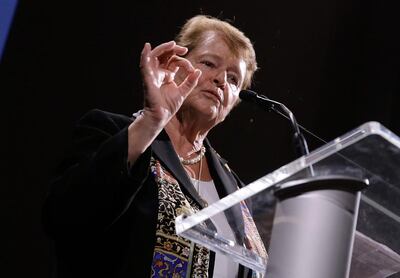
One critical issue is the precarious position of blue-collar workers, who face particular risks, and need special attention to be fully integrated into national response efforts, as Singapore is now doing.
Some of these workers have returned home to countries in South and South-East Asia like Bangladesh, adding further strain to their already weak health systems and depriving the economy of valuable remittances. If the virus takes hold there, it could easily spread to the giant refugee camp in Cox’s Bazaar, home to around 800,000 Rohingya refugees from Myanmar, with appalling consequences.
In the Middle East, the virus has already wrought a terrible toll in Iran. Some Arab states – especially Syria, Iraq and Lebanon – may be in an even more difficult position, with their healthcare systems and economies already overstretched by conflicts and insecurity.
Then there are some of the most densely packed populations in the world, from Cairo to Gaza to the millions of Syrians in refugee camps. Syrian refugees in the region are facing an increasingly hostile environment. In Lebanon they are being turned away from hospitals, even as the first case of Covid-19 has been confirmed in a Palestinian refugee camp in the Bekaa Valley.
At this time of global crisis, we are all only as safe as the weakest link in our human chain. With wise leadership, strategic investments and an open-minded foreign policy, I hope the Gulf region can play a key role in securing our common future.
Gro Harlem Brundtland is a former Prime Minister of Norway and was Director-General of the World Health Organisation from 1998-2003. She is a member of The Elders, the group of independent global leaders founded by Nelson Mandela


